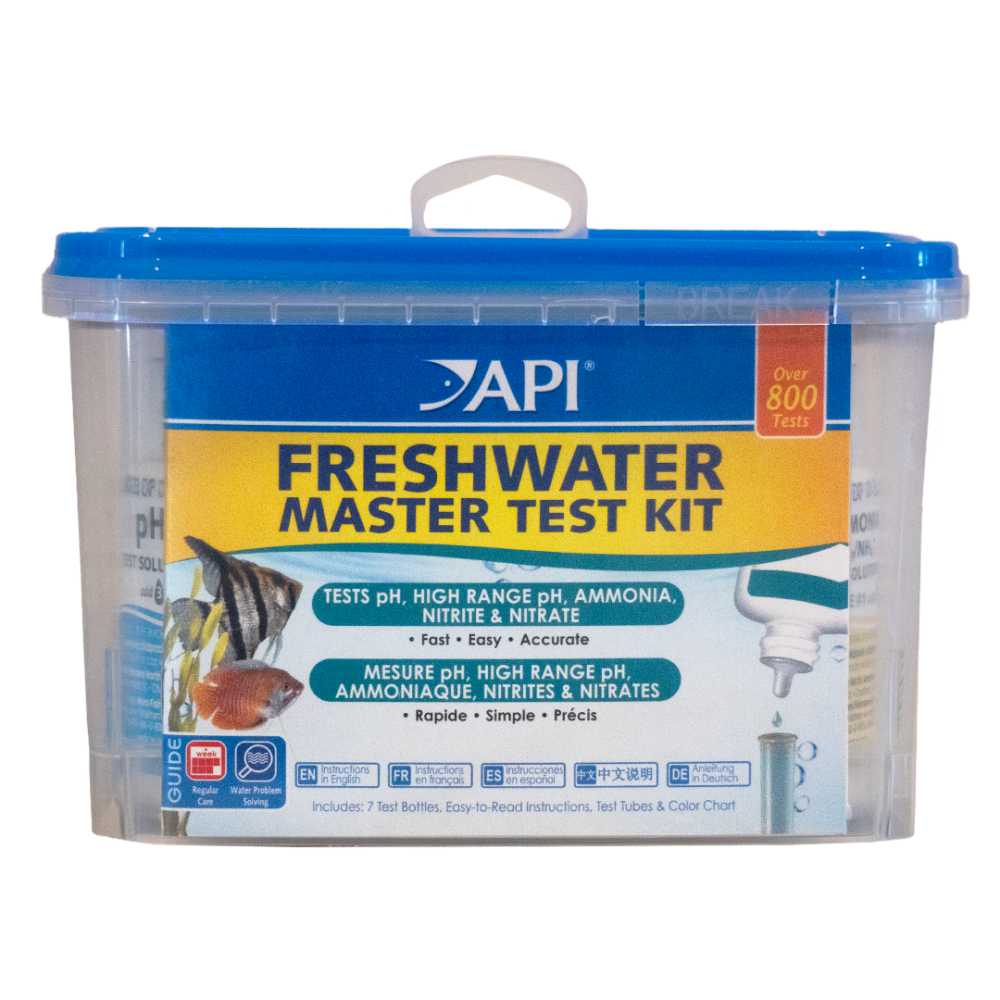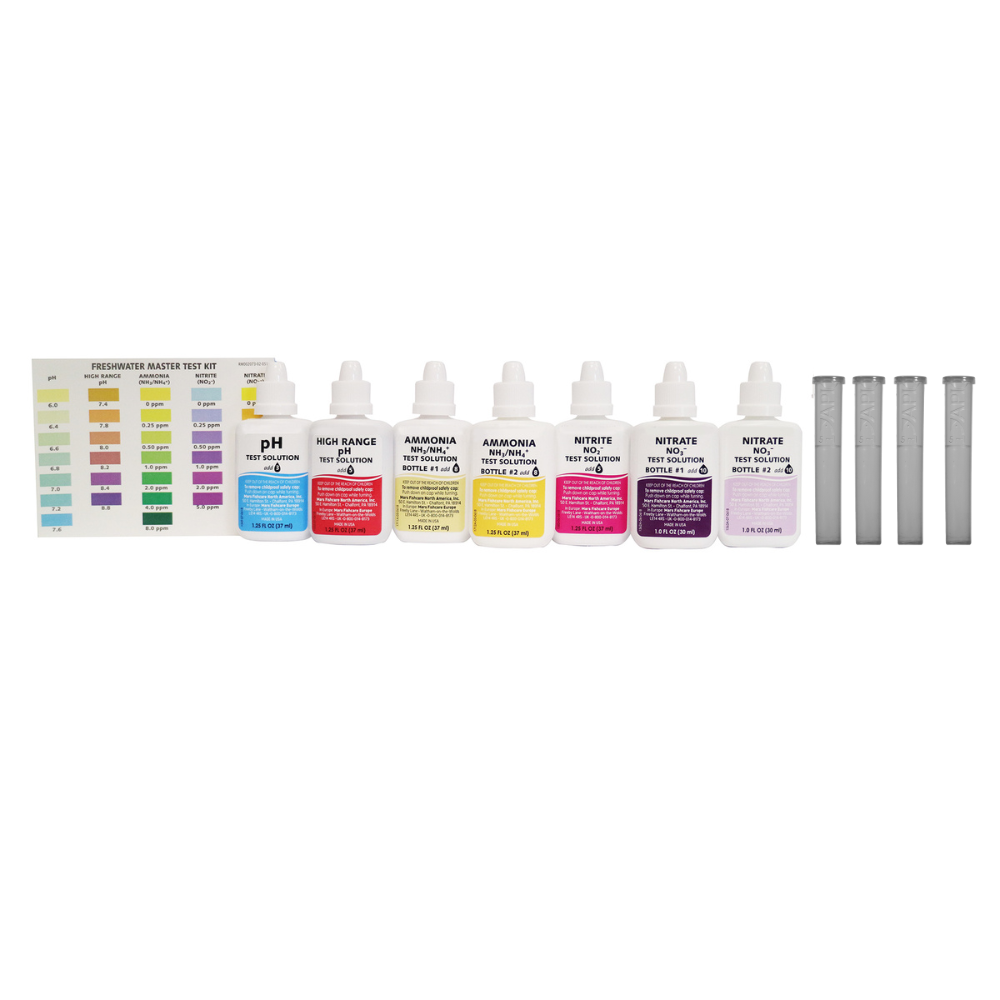The API® FRESHWATER MASTER testing kit measures the four most important levels in freshwater aquariums quickly and accurately, including pH, high-range pH, ammonia, nitrite, and nitrate. With scientific accuracy for professional results, the FRESHWATER MASTER kit includes four test tubes and a convenient storage container for easy organization. The kit also comes with a step-by-step instruction booklet with a color chart providing information on how to correct unsafe water conditions.
We recommend taking a few minutes each week to monitor your aquarium’s conditions and create a better underwater world for your fish. Testing your aquarium water has never been this easy or accurate!
It includes 800 tests and features seven testing solutions, easy-to-read instructions, four test tubes, and a color chart.
**Attachments:**
- Safety Data Sheets
- API Ammonia Safety Data Sheet.pdf
- API Ammonia Solution 2 Safety Data Sheet.pdf
- API High pH Safety Data Sheet.pdf
- API Nitrate Solution 1 Safety Data Sheet.pdf
- API Nitrate Solution 2 Safety Data Sheet.pdf
- API pH Safety Data Sheet.pdf
- Freshwater.pdf
- Instruction Guides
- API Freshwater Testing Kit Instruction Manual.pdf
**FAQs**
1. **Why test pH?**
pH is a measure of how acidic or basic the water is. A pH reading of 7.0 is neutral, while readings above 7.0 are alkaline, and readings below this level are acidic. It's important to maintain the appropriate pH level in your aquarium to ensure optimal water quality for the specific fish species you have, as different fish species require different pH levels in their habitats. The API® FRESHWATER MASTER kit allows you to test the pH levels in your water whenever needed!
2. **Why test ammonia?**
Fish continuously release ammonia directly into the water through their gills, urine, and solid waste. Uneaten food and other waste also add ammonia to the water. The natural way your aquarium handles this ammonia is through biological filtration or the natural cycling of the aquarium. However, as with any natural processes, imbalances can occur. That’s why regular testing for ammonia presence is essential.




